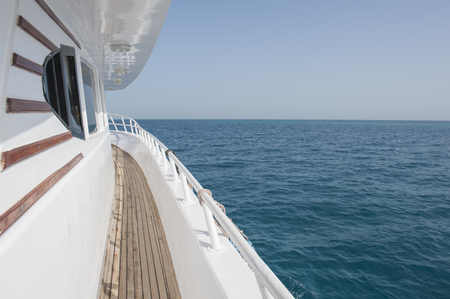Protection Against Unexpected Cancellations
Planning a cruise is exciting, but life can be unpredictable. Even after you’ve booked your dream vacation, things can pop up that force you to change your plans at the last minute. Maybe you or a family member gets sick, there’s a family emergency, or work calls you back unexpectedly. These situations can happen to anyone, and unfortunately, most cruise lines have strict cancellation policies that could leave you out of pocket.
How Cruise Travel Insurance Helps
Cruise travel insurance steps in when the unexpected happens. If you need to cancel your trip at the eleventh hour, insurance can help you recover most—or even all—of your prepaid expenses. That means you won’t lose thousands of dollars if life throws you a curveball right before your vacation.
Common Reasons for Last-Minute Cancellations
| Reason | Example | Covered by Insurance? |
|---|---|---|
| Illness | You get the flu or test positive for COVID-19 before departure | Usually Yes |
| Family Emergency | A close relative is hospitalized suddenly | Usually Yes |
| Work Obligations | Your boss cancels your approved time off due to a project crisis | Sometimes* |
| Other Unforeseen Events | Natural disasters or jury duty notice | Depends on Policy |
*Check your policy for “Cancel for Any Reason” (CFAR) coverage for maximum flexibility.
No one wants to think about cancelling their vacation, but having cruise travel insurance gives you peace of mind. You can book your next adventure knowing that if plans change, your hard-earned money won’t go down the drain.
Coverage for Medical Emergencies at Sea
One of the top reasons to get cruise travel insurance is to make sure you’re covered in case of a medical emergency while you’re at sea. Medical care on a cruise ship or in a foreign port can be surprisingly expensive, and most regular health insurance plans from the United States do not cover these costs once you leave the country.
Why Standard Health Insurance Isn’t Enough
Your everyday health insurance usually only covers care within the U.S. Once your cruise ship sails into international waters or docks at a foreign port, your coverage may stop working. This means if you get sick, injured, or need emergency medical attention, you could face huge out-of-pocket expenses.
How Cruise Travel Insurance Helps
Cruise travel insurance steps in to help with:
| Situation | Standard Health Insurance | Cruise Travel Insurance |
|---|---|---|
| Illness or Injury Onboard | Not Covered | Covers medical care and medications |
| Medical Treatment in Foreign Port | Not Covered | Pays for hospital visits and treatments abroad |
| Emergency Medical Evacuation | Not Covered | Covers helicopter transport to nearest hospital or back home |
| Prescription Medication Replacement | Not Covered | Helps pay for lost or needed medication replacements during your trip |
The Importance of Emergency Evacuation Coverage
If you experience a serious injury or illness while cruising—like a broken bone, heart attack, or sudden sickness—you might need to be airlifted off the ship or transported to a hospital back home. These services can cost tens of thousands of dollars. Cruise travel insurance can cover these emergency evacuations, saving you from massive bills and giving you peace of mind as you enjoy your vacation.
![]()
3. Lost or Delayed Luggage Safeguards
Nothing can ruin the excitement of stepping onto a cruise ship faster than finding out your luggage didn’t make it. Lost or delayed luggage is more common than you might think, especially when flights and transfers are involved in getting to your port. Cruise travel insurance steps in to protect you if your bags don’t arrive on time—or at all.
Why Is This Coverage Important?
If your belongings are missing, you could be left without essentials like clothing, toiletries, and medication. With the right insurance, you’ll get reimbursement for the necessities you need to buy while waiting for your bags. This not only saves you money but also helps ease the stress so you can focus on enjoying your vacation instead of worrying about what you’re missing.
What Does Insurance Typically Cover?
| Situation | What Insurance Offers |
|---|---|
| Luggage lost by airline or cruise line | Reimbursement for lost items up to a set limit |
| Luggage delayed for a certain number of hours (usually 12-24 hours) | Coverage for emergency purchases like clothes and toiletries |
| Personal items stolen during travel | Compensation based on policy terms |
How It Works in Real Life
Imagine arriving at your embarkation city and discovering your suitcase is somewhere else. With travel insurance, you can quickly buy what you need—like a swimsuit for that first pool day—and get reimbursed later. If your luggage never turns up, insurance helps cover the cost of replacing important items, making sure your vacation doesn’t skip a beat.
4. Protection from Missed Connections
Missing your cruise departure because of a flight delay or cancellation is a traveler’s nightmare. Imagine planning for months, only to have an unexpected airline issue throw everything off track. Cruise travel insurance can be a real lifesaver in these situations by helping you cover the extra expenses that come with catching up to your ship or rearranging your travel plans.
Why Missed Connections Happen
Even the best-planned itineraries can go sideways. Here are some common reasons:
| Reason | How It Affects Your Trip |
|---|---|
| Flight Delays | You arrive after your cruise has already departed. |
| Flight Cancellations | You need to rebook flights and possibly miss embarkation. |
| Bad Weather | Storms or snow disrupt your entire travel schedule. |
| Mechanical Problems | Your plane is grounded, making you late for boarding. |
How Travel Insurance Helps
If you miss your cruise due to circumstances like flight issues, most travel insurance policies can reimburse you for:
- The cost of transportation to the next port so you can catch up with your ship
- Hotel stays and meals if you have to wait overnight for new arrangements
- Non-refundable cruise costs if you can’t join the cruise at all (depending on your policy)
- Additional change fees for flights or other transport
Example Scenario
If your flight from New York to Miami is canceled due to bad weather and you miss your ship’s departure, your insurance may pay for a last-minute flight to the next port in the Bahamas, plus a hotel if needed.
Tip:
Always keep receipts and proof of delays when filing a claim! This makes the reimbursement process much smoother with your insurance company.
5. Peace of Mind for Adventure Activities
Cruise vacations are more than just relaxing by the pool or enjoying onboard entertainment. Many travelers look forward to exploring new destinations with exciting excursions like snorkeling, zip-lining, hiking, or even ATV tours. While these adventures make your trip unforgettable, they also come with unexpected risks. That’s where cruise travel insurance steps in to give you peace of mind.
Why You Need Insurance for Off-Ship Activities
Accidents can happen when you least expect them, especially during adventurous activities. Medical emergencies or injuries while participating in shore excursions may not be covered by your regular health insurance, especially if you’re outside the United States. Travel insurance designed for cruises often includes coverage for:
| Activity | Potential Risks | Insurance Coverage Benefits |
|---|---|---|
| Snorkeling/Scuba Diving | Injury, equipment loss | Emergency medical care, gear replacement |
| ATV/Jeep Tours | Accidents, vehicle damage | Medical expenses, trip interruption |
| Zip-Lining/Hiking | Falls, sprains, wildlife encounters | Emergency evacuation, medical bills |
| Cultural Tours/City Excursions | Losing valuables, minor accidents | Baggage loss/delay, personal liability protection |
Worry-Free Exploration
No one wants to stress about “what ifs” while having fun off the ship. With cruise travel insurance, you’re free to enjoy every excursion knowing you’re protected from costly mishaps or interruptions. Whether it’s a minor injury or an unexpected cancellation due to adventure-related incidents, your insurance helps you focus on making memories instead of worrying about expenses.


